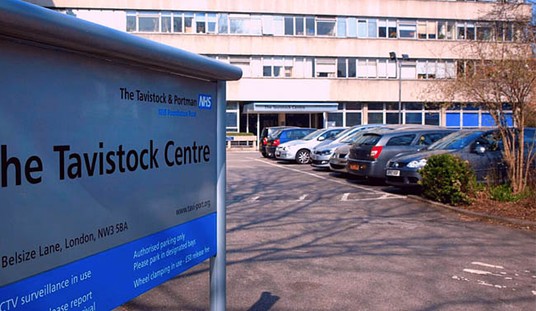A little deja vu for you as the week winds down, with O calling on an Arab tyrant to start “transitioning” for the third time in the past 13 months. Today was the big “Friends of Syria” summit in Tunisia between western powers and the Arab League. Resolved: Something needs to be done. They’re just … not sure what.
The united denunciation of Assad masked disagreement in the closed-door conference on whether to arm opposition forces. Asked whether he favored weapons supplies to the Free Syrian Army composed primarily of military defectors, Saudi Arabian Foreign Minister Saud al-Faisal, said “I think it’s an excellent idea.” He spoke to reporters as he entered a private meeting with Clinton.
But Tunisian foreign minister Rafik Abdessalem, the conference host, noted that the final conference communiqué included no mention of military aid or outside intervention…
Obama administration officials described the tougher language used by Clinton in recent days as useful to increase pressure on Assad. But they also made clear that steps toward arming the opposition were likely to become a reality they would not oppose if the Syrian leaders does not yield…
Reassurances to Syria’s military and civil service were also part of the conference agreement, as the administration and others seek to convince Assad’s supporters and institutions inside Syria that they are on the losing side and should quickly part company with him.
No surprise that the Saudis were the most aggressive in wanting to oust Iran’s pal Assad. The sooner he’s gone, the sooner there’ll be a new Sunni-dominated power on the doorstep of Iraq and Iran. If you believe some Syrian opposition sources, in fact, arms have already begun to trickle into the country for rebel use. Supposedly Syrian exiles are buying light weapons and communications equipment abroad while western powers look the other way and then sending them over the border. The next step will be to procure heavier weapons like anti-tank and anti-aircraft missiles. As for who’s receiving these weapons — secularists? Islamists? Al Qaeda? — no one really knows. Al Qaeda is there, though, with the blessing of the new top dog. That’s another reason why the Saudis are eager to intervene: The more eyes and ears the “Friends of Syria” have inside the country, the better they’ll be able to control where the weapons go. Needless to say, bumping off Assad and creating a power vacuum that’s filled by AQ a la Anbar province circa 2006 would be a pyrrhic victory.
And it’s not just conventional weapons they’re worried about:
The State Department has begun coordinating with Syria’s neighbors to prepare for the handling of President Bashar al-Assad’s extensive WMD assets if and when his regime collapses, The Cable has learned…
Syria is believed to have a substantial chemical weapons program, which includes mustard gas as well as sophisticated nerve agents, such as sarin gas, as well as biological weapons. Syria has also refused IAEA requests to make available facilities that were part of its nuclear weapons program and may still be in operation…
“We have ideas as to the quantity and we have ideas as to where they are,” Countryman said. “We wish some of the neighbors of Syria to be on the lookout… When you get a change of regime in Syria, it matters what are the conditions — chaotic or orderly.”
Anything could happen: The army could collapse, leaving WMD depots unguarded; Assad, in desperation, could start handing them out to Hezbollah or lord knows who else; or of course he might make some sort of insane last stand by launching them at rebel outposts, Israel, or Turkey. According to one Syrian defector, nerve gas has already been used in Homs — under the supervision of Iranian and Russian personnel — but I haven’t seen that corroborated anywhere. It’s probably propaganda. For now.
Here’s O in the Oval Office running through the now familiar Mubarak/Qaddafi/Assad script. If you thought Libya’s new government was fractious and disorganized, read this NYT piece about the opposition Syrian National Council. Not only are secular and Islamist factions predictably suspicious of each other, but some important minorities like the Alawites aren’t even represented — and in fact, this isn’t the only council of dissidents that purports to speak for the Syrian public. What could go wrong? Exit quotation: “In a CNN/ORC/International poll released Tuesday, 73% of Americans said the U.S. has no obligation to respond to the ongoing unrest, while 25% agreed with the notion.”







Join the conversation as a VIP Member